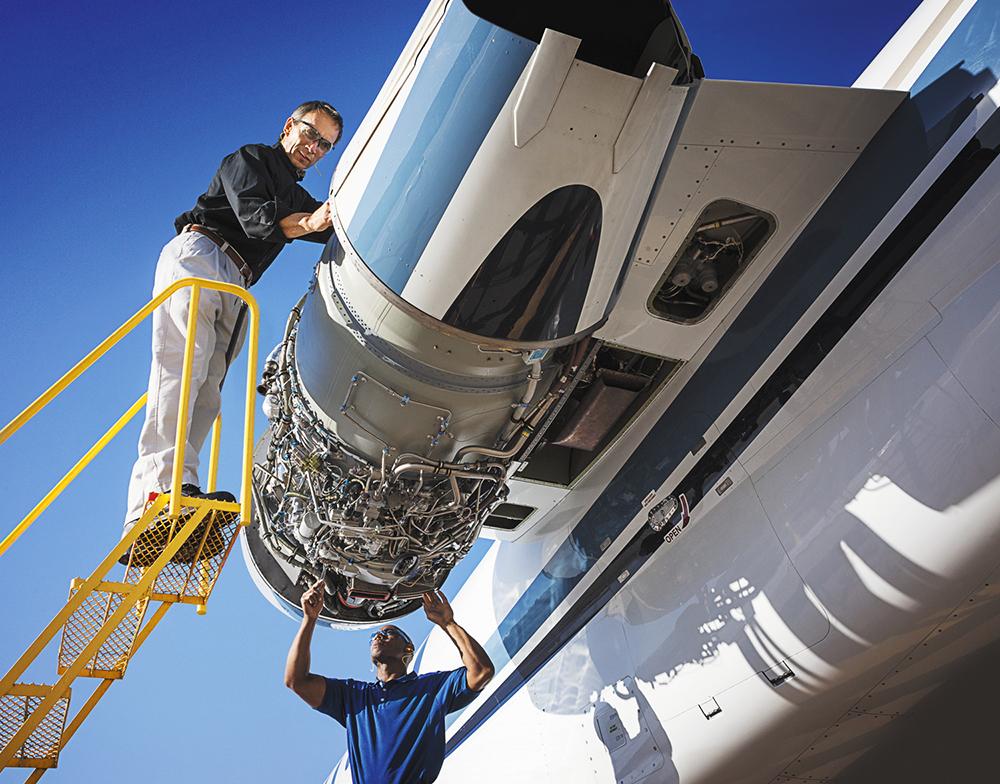
StandardAero has grown its engine MRO capabilities in Latin America through new regulatory approvals from Argentina and Chile. Its Regional Turbine Center (RTC) in Belo Horizonte, Brazil is now authorized by Argentina and Chile’s regulatory authorities to perform engine MRO for operators of aircraft registered in both countries.
The new approvals will also make it possible for StandardAero’s Brazil Mobile Service Team (MST) to travel to customer locations in Argentina and Chile, and for operators in both countries to ship their engines and APUs to StandardAero’s Brazil RTC for services.
The Brazil RTC was part of StandardAero’s 2021 acquisition of Dallas Airmotive, which had operated the site since 2009 to support the region’s business and general aviation operators with quick-turn engine maintenance and repair services. The Brazil RTC supports Pratt & Whitney Canada PT6A, PW100, PW500 and JT15D engines, as well as Honeywell TFE731, HTF7000 and GTCP 36 APUs.
Prior to the acquisition, StandardAero had no facilities in Latin America, although it did have customers throughout the region. The MRO notes that it had seen consistently increasing Latin American demand for local engine MRO since the Brazil RTC’s establishment.
According to Jeff Turner, vice president of StandardAero’s RTC and MST network, the new capabilities will provide greater convenience for Latin American customers that previously relied on North American MROs for support.
“These authorizations are significant and rather than waiting for support and services from North America, our customers can now receive local support by an OEM-authorized facility and staff, but closer and in-region,” says Turner.
At MRO Latin America earlier this year, several aftermarket providers in the region argued that they were poised to benefit from tight capacity and a strained labor market in North America, which is expected to drive MRO work in the Americas further south. Leandro Silva, general manager of StandardAero’s Brazil RTC, echoes this perspective.
“Our site and even MST technicians located in Latin America are strategic assets for our customers’ benefit, as they are able to receive quick-turn support and shipping/transport delays can be mitigated by choosing to have their work done in-region versus utilizing North American sites,” he says. “This also allows our North American sites to serve other markets more efficiently, but the larger benefit is for our customer base that demands service and support when and where they need it.”
The Latin American aftermarket ecosystem is actively pursuing more efficiencies. In June, Brazil joined Latin America’s Multinational Agreement for Aircraft Maintenance Organizations, which clears its approved repair stations to be certified by the other 11 member states with minimal additional regulatory red tape. Although StandardAero received the regulatory approvals from Argentina and Chile prior to this development, Silva says there has been “a recent evolution at all regulatory agencies,” adding: “The processes and communication between agencies and companies is increasingly efficient today and many processes are done by electronic means, bringing more agility and quality.”
Moving forward, Silva says StandardAero will consider pursuing regulatory approvals from other Latin American countries, including Bolivia, Colombia, Paraguay and Uruguay.




